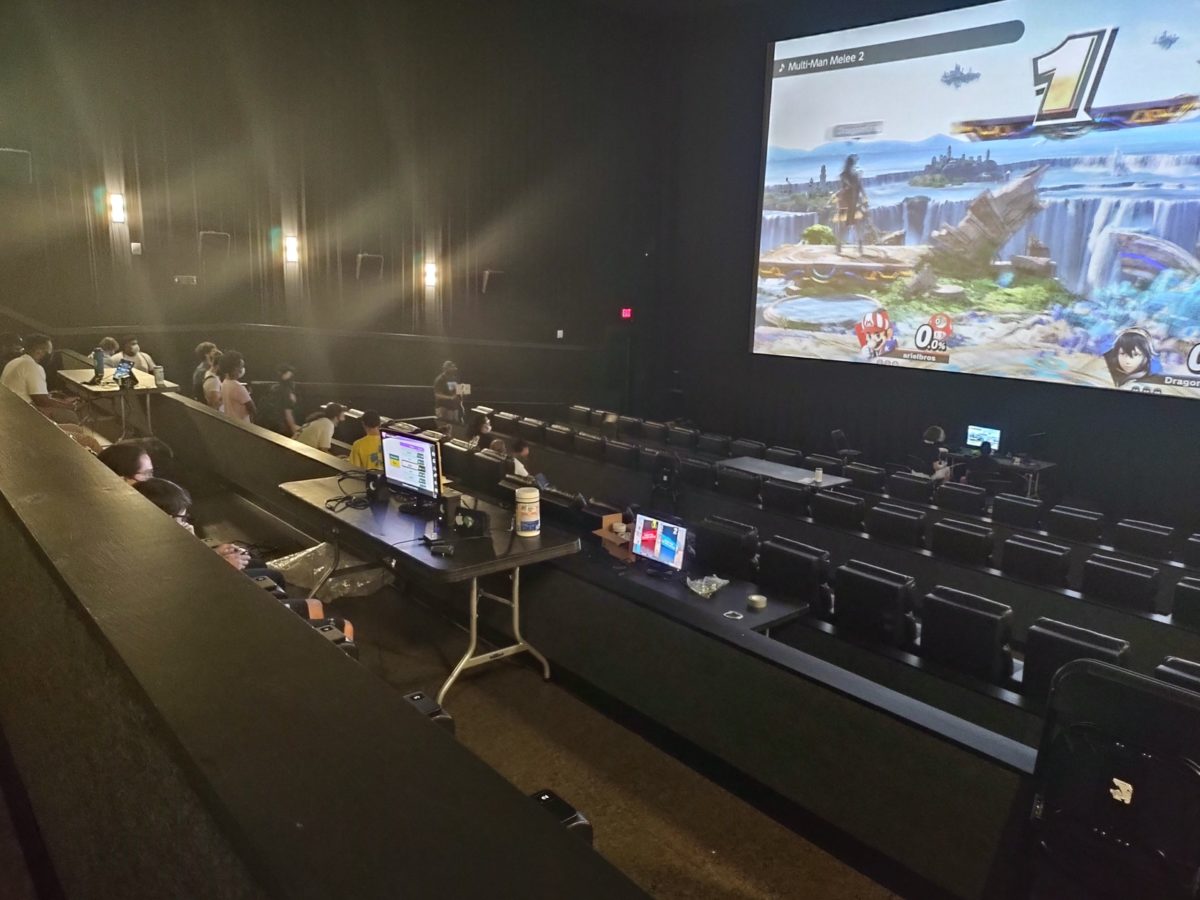Futures First Gaming’s (FFG) 2021 Fall Brawl reset the bar for esports events in Wilmington.
While it had been scaled back due to the rise in COVID-19 cases, the hybrid event with an in-person Penn Cinema component gave a glimpse of what esports can be in Delaware — gaming on giant screens, sharing resources and making the industry accessible to a new generation of underrepresented gamers.
And, of course, it was a lot of fun.
“These kids from Wilmington came to the event as part of a chaperoned trip organized by the William “Hicks” Anderson Community Center,” said FFG cofounder Stephen Sye. “They arrived around 12 p.m. and stayed for a few hours. Lo and behold, around 5:30 p.m. five of them rode their bikes all the way back to the theater to come back and kick it with us. These kids could have been anywhere, but they wanted to be with us and learn more about FFG, gaming, video production and everything else.”
Gamers Kingface_88 of Lewes, who won the Fortnite Solos Tournament, is just 8 years old; MPg of Hockessin, who won the Smash Bros. Ultimate Tournament, is 17. Aside from cash prizes for the winners, Fall Brawl was an official qualifying event for the upcoming virtual Esports Combine, the largest college recruiting event dedicated to esports, in October.
The Fall Brawl panel “From Da’ Games to Degrees,” moderated by this reporter, featured David C. Hughes, clinical assistant professor of sport management at Georgia State University; Christopher Turner, GM and head esports coach at Southern University; and Derek Pew, CEO of Harena Data, the company behind the Esports Combine.
The panel was geared toward young esports players and their parents, who may see playing video games as a pastime that doesn’t offer any of the benefits of “real” sports.
“Is esports a sport or not a sport? Who cares?” quipped Hughes during the panel. “In the end, what is impactful is jobs and things we see like increased graduation retention rate.”
The reality is, esports offers arguably even more benefits when it comes to college and potential career opportunities. Kids who are into esports learn early how to interact with technology and often teach themselves skills like coding, marketing and video production. Potential careers go well beyond the 1% who will become superstar esports athletes, including coaching, design, marketing, content creation and game development.
And there are esports scholarships, just like for football for baseball, as more and more colleges and universities (such as the University of Delaware) launch esports teams.
If you (or your kid) is serious about an esports career, here are five quick takeaways from the panel:
- It’s not just about the game — “If you have skillsets like content creation, those are the types of skillsets that I look for as a head coach,” Turner said. “You may not make the varsity team, but you can still be a part of [it] and make a difference.”
- Adults are learning from youth in the esports space — “The youth drive esports first,” Pew said. “It’s not based on an old teaching model.” If there is no esports club or team at a school, it’s often students who push for it to happen and shape it. This isn’t an area where adults are telling the kids what to do.
- Research the games your prospective colleges play — There are thousands of games out there, but most colleges focus on a few that are becoming the standard college esports games, including League of Legends, Rocket League and Overwatch. If you’re interested in playing on a college team, you must be good at the specific game(s) they participate in.
- Build content to grow in the industry — Content building is not just a skillset that is attractive to recruiters. “A good player can be making money even before they get to college,” Pew said.
- Learn to be a team player — College esports teams are just that — teams. You might be the best solo player there is, but recruiters are going to be looking for esports athletes who play well with others. Consider joining a league to grow these skills. (FFG happens to offer league play.)
Want more? Watch the whole thing:
“From Da’ Games to Degrees” was one of two panels at FFG Fall Brawl 2021. Keep an eye on for takeaways on the other panel, “Get Ya Mind Right,” moderated by OfficialChiKa Gaming founder Greden Camacho.
Before you go...
Please consider supporting Technical.ly to keep our independent journalism strong. Unlike most business-focused media outlets, we don’t have a paywall. Instead, we count on your personal and organizational support.
Join our growing Slack community
Join 5,000 tech professionals and entrepreneurs in our community Slack today!





